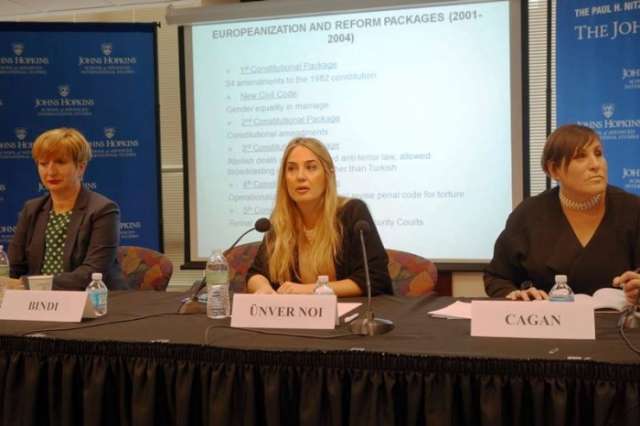Following First World War I, the map of the Middle East was redrawn and Kurds found themselves living in Turkey, Iran, and two new Arab states–Syria and Iraq–which were under French and British mandate. After the establishment of the Republic of Turkey, the Kurds did not renounce their goal to establish an independent Kurdish state. The Shaykh Said Rebellion of 1925 emerged as a Kurdish separatist movement, but was suppressed by the Republic of Turkey. Since 1984, the The Kurdistan Worker’s Party (PKK), an organization officially classified as “terrorist” by Turkey, the United States, and the European Union, has carried out a violent armed struggle and terror attacks to obtain an independent Kurdish state in Turkey. More than 40000 people died as a result of PKK terror.
PJAK, which is affiliated with the PKK, took up arms for self-rule in the Kurdistan province of Iran beginning in 2004. In parallel with increasing PKK attacks, PJAK has increased its attacks in Iran. Turkey and Iran fears that the creation of an independent state in northern Iraq might motivate their own Kurdish separatists to press for independence. Besides this, creation of an independent state might further destabilize the region by causing ethnic conflicts between Kurds and Arabs, Kurds and Turkmens. These ethnic conflicts might lead to new wars in the region that cause new wave of refugee flows from the region to the west.
The common policy among Turkey, Iran and Iraq concerning the Kurdish issue is that they are all opposed to the establishment of an independent Kurdish state in the region due to fears that this could have a domino effect in the region. Hence, it is obvious to say that there is collaboration among these four states on the issue of Iraq’s territorial integrity. Cooperation in preventing the establishment of an independent Kurdish state in Iraq does seem feasible and likely to continue. They will not recognize an independent Kurdistan.
Iran banned direct flights to and from the Kurdistan Region on Sunday. Ankara previously has built a strong relationship with the KRG through an oil pipeline and other investments in Northern Iraq that feeds the Kurdish economy. Closing the oil valves in Turkey and the Iraqi border Habur are among options of sanctions voiced by Turkish government. Besides this, Turkey has the right to intervene if Iraq’s territorial integrity threatened according to Ankara Agreement signed between Turkey, the United Kingdom and Iraq in 1926. This makes military intervention among the options on the table but as a last resort. Turkey and Iraq joint drills near Iraqi border indicate that military intervention will not be unilateral act of Turkey. However, implementation of these sanctions by Turkey is related to the KRG’s action after the referendum.
Aylin Ünver Noi is a Non-Resident Senior Fellow at the Center for Transatlantic Relations (CTR), the Johns Hopkins Paul H. Nitze School of Advanced International Studies (SAIS). She is member of the Board and Advisory Council of the Mediterranean Citizens’ Assembly Foundation-FACM, Valencia. She is an Associate Researcher at the European Institute for Research on the Mediterranean and Euro-Arab Cooperation – MEDEA in Brussels. Ünver Noi is an Associate Professor and Head of International Relations department at Istinye University since May 2017.
Bakhtiyar Batiyev
AzVision.az
More about: #Kurdistan #referendum #Turkey
















































